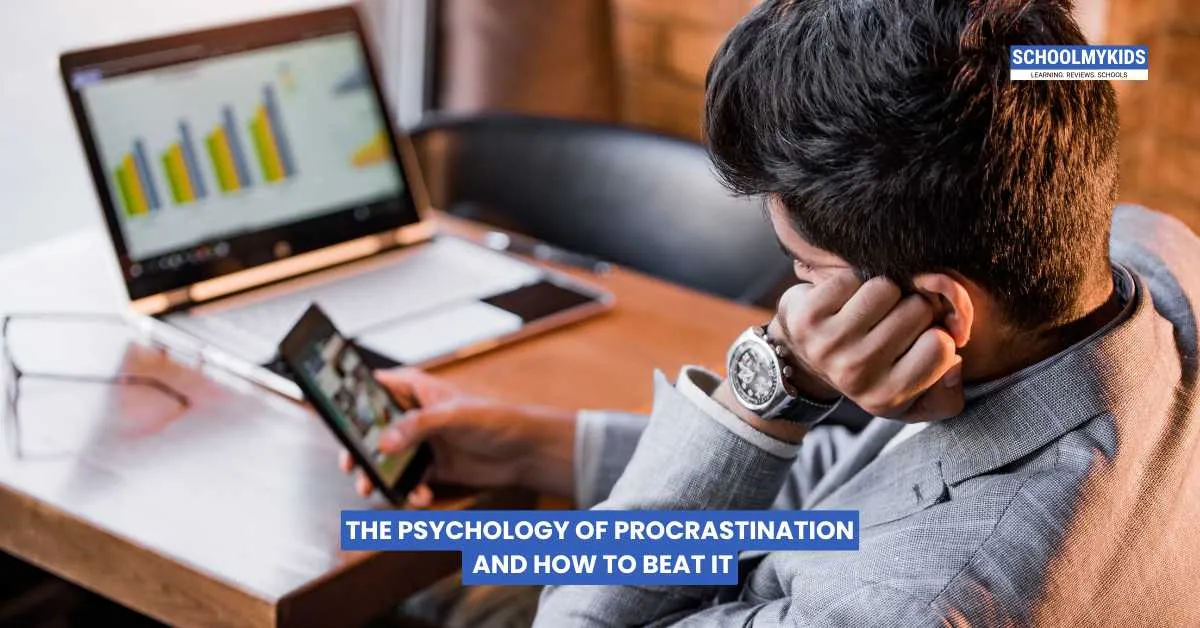Every student knows the familiar cycle: an assignment is due, you have plenty of time, but somehow you find yourself scrambling at the last minute, wondering why you didn't start earlier. Procrastination isn't a character flaw or a sign of laziness – it's a complex psychological phenomenon that affects nearly everyone, especially in academic settings.
Understanding the Procrastination Brain
Procrastination happens when your emotional brain overrides your rational brain. When faced with a task, your brain evaluates it for potential threats or discomfort. If the task seems overwhelming, boring, or likely to result in failure or judgment, your emotional brain triggers avoidance behaviors.
This creates what psychologists call "present bias" – your current self prioritizes immediate comfort over future benefits. The assignment due next week feels abstract and distant, while the Netflix show in front of you offers immediate gratification.
Interestingly, procrastination often involves a perfectionist streak. Many procrastinators delay starting because they want conditions to be perfect or fear their work won't meet their high standards. This creates a paradox where the desire to do something well prevents you from doing it at all.
The Emotional Cycle of Procrastination
Understanding the emotional journey of procrastination can help you recognize and interrupt the pattern:
Initial Optimism: "I have plenty of time; I'll do my best work on this project."
Procrastination: Small delays that gradually build as the task feels more daunting.
Rising Anxiety: Growing awareness that time is running out, coupled with guilt about delays.
Crisis Mode: Last-minute panic that finally provides enough urgency to overcome avoidance.
Relief and Regret: Completion brings relief, but also regret about the stress and compromised quality.
This cycle reinforces itself because the relief at the end can feel rewarding, even though the overall experience was negative.
Breaking Down the Barriers
Start Ridiculously Small: The most effective anti-procrastination strategy is to make the first step so small it feels impossible to fail. Instead of "write the research paper," commit to "open a document and write one sentence." Often, starting is the hardest part, and momentum builds naturally.
Use the Two-Minute Rule: If a task takes less than two minutes, do it immediately. For larger tasks, identify two-minute components you can complete right away.
Implementation Intentions: Instead of vague goals like "I'll work on my essay," create specific if-then plans: "If it's 7 PM and I've finished dinner, then I'll open my laptop and work on the introduction for 25 minutes."
Environment Design: Remove barriers to starting and add barriers to procrastination. Keep your study materials visible and easily accessible while putting distractions like your phone in another room.
Cognitive Strategies That Work
Reframe the Task: Instead of thinking "I have to write this paper," try "I get to explore this interesting topic and share my perspective." Small shifts in language can dramatically change how your brain perceives a task.
Focus on Process, Not Outcome: Rather than fixating on the final grade or result, concentrate on the process of learning and creating. This reduces performance anxiety that often triggers procrastination.
Use Temptation Bundling: Pair tasks you need to do with activities you enjoy. Listen to your favorite music while organizing notes, or work in a coffee shop you love.
Implement the Pomodoro Technique: Work for 25-minute focused intervals followed by 5-minute breaks. This makes large tasks feel more manageable and provides regular reward points.
Dealing with Perfectionism
Many students procrastinate because they fear their work won't be perfect. Combat this by:
Embracing "Good Enough": Recognize that done is better than perfect. You can always revise and improve, but you can't improve something that doesn't exist.
Setting Process Goals: Instead of "write a perfect essay," aim for "spend two hours researching and drafting." This shifts focus from outcomes you can't fully control to actions you can.
Scheduled Imperfection: Deliberately plan to create imperfect first drafts. Give yourself permission to write badly initially, knowing that revision is part of the process.
Building Long-Term Anti-Procrastination Habits
Self-Compassion: Treat yourself with the same kindness you'd show a good friend. Self-criticism often makes procrastination worse by adding shame to the mix.
Regular Reflection: Spend a few minutes each week identifying what worked well and what triggered procrastination. This helps you recognize patterns and adjust strategies.
Energy Management: Schedule demanding tasks during your peak energy hours. If you're a morning person, tackle challenging assignments before noon rather than forcing yourself to work late at night.
Celebration Rituals: Acknowledge progress and completion, even for small tasks. This reinforces positive associations with productivity.
When Procrastination Signals Something Deeper
Sometimes chronic procrastination indicates underlying issues like anxiety, depression, ADHD, or unrealistic expectations from yourself or others. If you consistently struggle despite trying multiple strategies, consider speaking with a counselor or academic advisor who can help you identify and address root causes.
Remember, overcoming procrastination is a skill that improves with practice. Be patient with yourself as you experiment with different approaches and find what works best for your unique situation and learning style.









Be the first one to comment on this story.